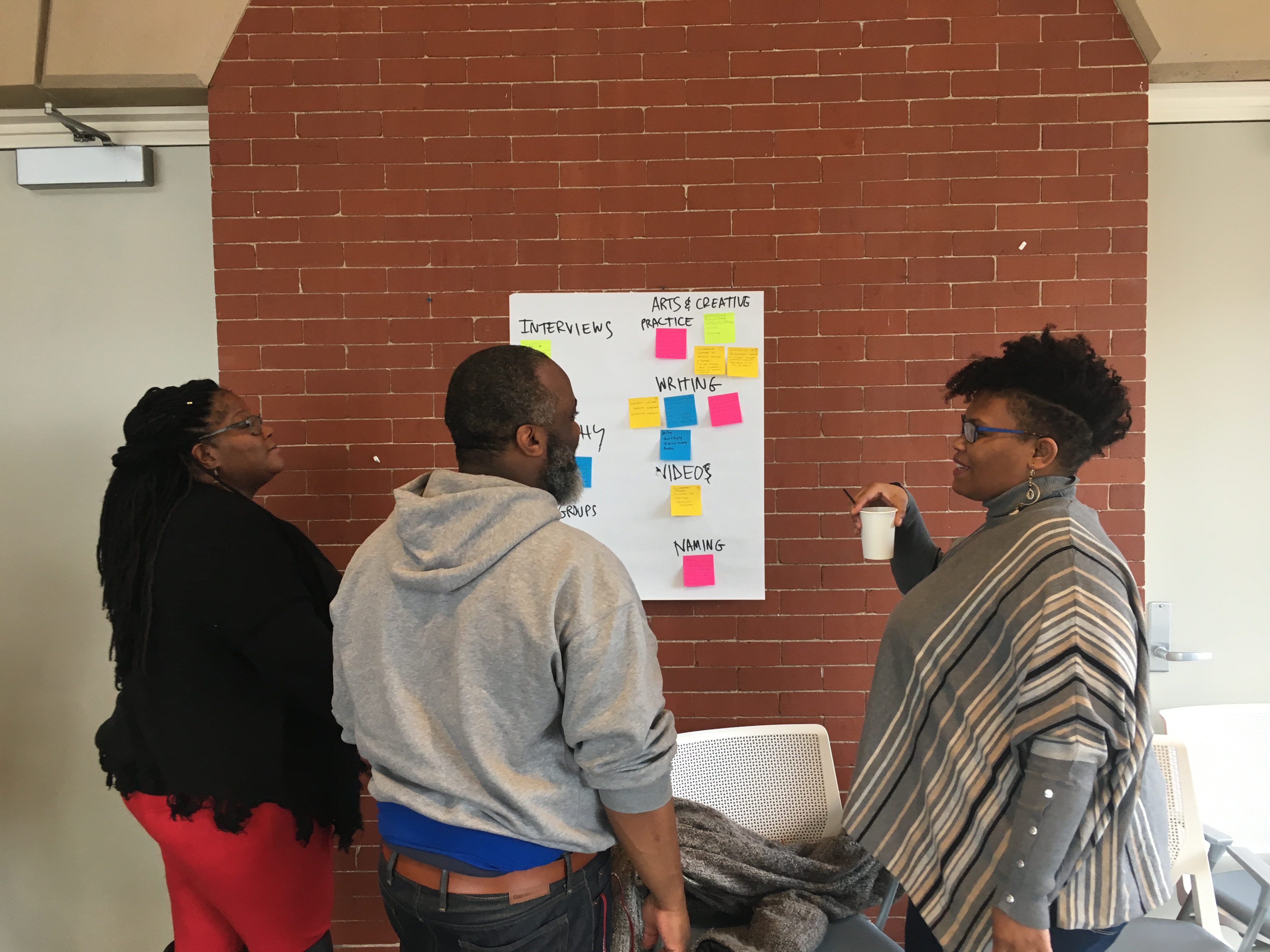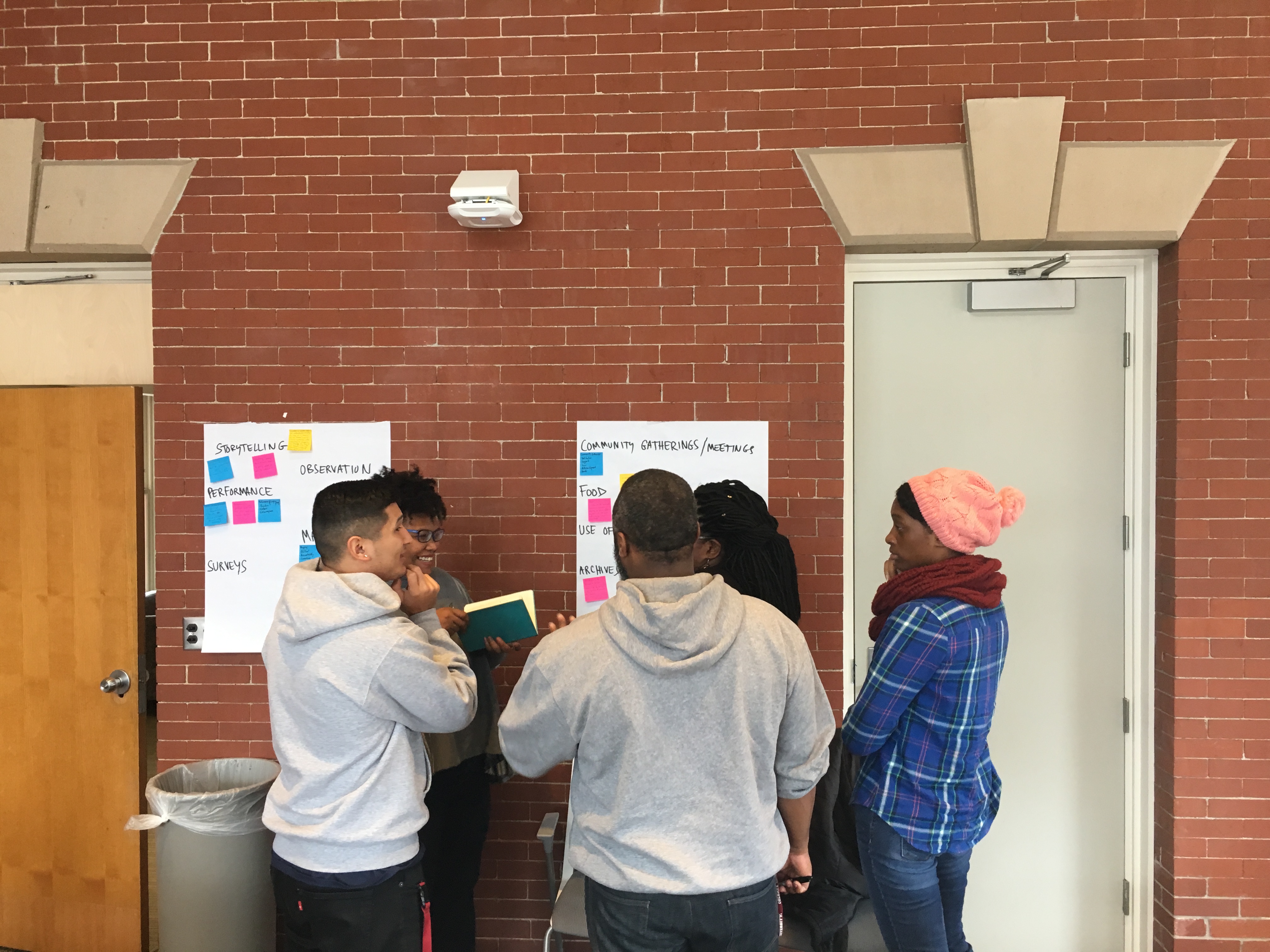Democratizing Knowledge: Institutions, Research, and Trauma
Over the last couple of years we have started working with institutions more and more. At first this felt like a separate branch of our work, which has been grounded in our community collaborations. Increasingly, however, we see the ways that these seemingly different contexts are actually really interconnected, mutually supportive, and often overlapping in value and purpose.
Last week we spent 3 days with the Democratizing Knowledge Collective at Syracuse University, an example of how those we work with are not just part of institutions, but part of community groups, invested in their own communities, and interested in understanding how their work is connected across these spheres. This group, which was mostly graduate students and faculty of color, brought up the ways that when we work with institutions, we are also often working with community issues, and that this work is always deeply personal.
Our sessions were based around PAR and ethnography, with the aim of participants identifying and then carrying out an institutional ethnography of Syracuse University. The workshop also brought up the ways that institutions like universities, can cause a lot of trauma and pain, specifically for black, brown, and indigenous students and faculty.
During our sessions we built personal connections and started to think about our stories in relation to ethnography and research. We also explored our roles in relationship to our identities. From this base, we looked at reasons why an institutional ethnography might be needed and used PAR as a framework and lens through which to understand the research and then practice ethnography in an institutional setting.
While we worked on our intended research process and questions, we also made space to address the trauma that comes up while doing research and working within institutions. Sharing stories, looking at our roles and identities, and then thinking about institutional change is difficult, deep work, getting to the core of oppression and structural violence.
These workshops were a reminder for us that opening up spaces for inquiry and investigation also opens wounds. We are committed to then taking care of ourselves and each other so that our work, our psyches, and our communities can thrive.
We look forward to hearing how the work grows with this group and to keep learning from our participants and our workshops through a PAR framework that can allow us to take on the emotional and analytic aspects of this work through its reflective process.


